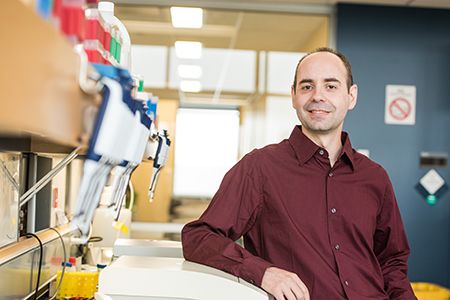Article
Large Family Study Strengthens Case for Inherited Multiple Sclerosis
Author(s):
Some forms of multiple sclerosis can be inherited.

A new intensive study from the University of British Columbia (UBC) appeared to bolster the case that at least some forms of multiple sclerosis (MS) can be inherited.
The research, conducted in partnership with Australia’s Florey Institute of Neuroscience and Mental Health, focused on a large Canadian family with a high incidence rate of multiple sclerosis. Using DNA samples, the researchers identified a combination of 2 genetic mutations that greatly increased the likelihood that an individual member of the family would develop MS.
It follows similar research, published last year, in which the same team identified a single genetic mutation that appeared to heighten MS risk in 2 separate large families.
The researchers suggested this new study ought to eliminate doubt that genes could be a major factor in the development of MS. In fact, study participants with the genetic mutation combination had a strikingly high chance — 7 in 10 – of developing MS, versus just a 1 in 1,000 chance in the general population.
The mutations, genetic variants of P2RX4 and P2RX7, affect the immune system and phagocytosis — a process used by cells to destroy or eliminate pathogens and debris.
“This is the first time that problems with phagocytosis have been linked to MS, and provides scientists with a better understanding the disease’s origins and targets for developing new treatments,” said Carles Vilarino-Guell (pictured), the study’s lead author and an assistant professor of medical genetics at UBC.
The genetic mutations identified in this study were specifically tied to relapsing-remitting MS. According to the researchers, the fact that this mutation leads to one specific type of the disease suggested that the different forms of MS could be the result of different biological processes. If so, it could explain why existing therapies don’t work as well on progressive forms of the disease as they do on the relapsing-remitting form.
The study could also have implications for early treatment of patients with MS. For instance, the authors suggest that a patient in a family with a high incidence of MS could get a genetic test to determine if they have the mutations. If they do, the patient could undergo diagnostic imaging long before a patient would typically be tested for MS. If the tests suggested early MS, the patient would also have the opportunity to make lifestyle adjustments, such as quitting smoking.
Studies have suggested that smoking could speed the progression of MS.
Last year’s study, which was published in Neuron, found that a mutation in the gene, NR1H3, greatly increased the risk of progressive MS, a more aggressive form of the disease.
Both the 2016 study and the new study were made possible by a long-term project of the Multiple Sclerosis Society of Canada and the Multiple Sclerosis Scientific Research Foundation, which have been working with UBC to collect blood samples from MS patients since 1993.
Altogether, approximately 13,000 blood samples have been collected, including samples from 4,400 people with MS and their blood relatives. The large family evaluated for the study had donated blood samples to this project.
The study, titled “Purinergic receptors P2RX4 and P2RX7 in familial multiple sclerosis,” was published this month in the journal Human Mutation.
Photo credit: Paul Joseph/University of British Columbia
Related Coverage:
MS: Why Some Patients Have Seizures
Researchers Identify Cells That May Help Myelin Regeneration


